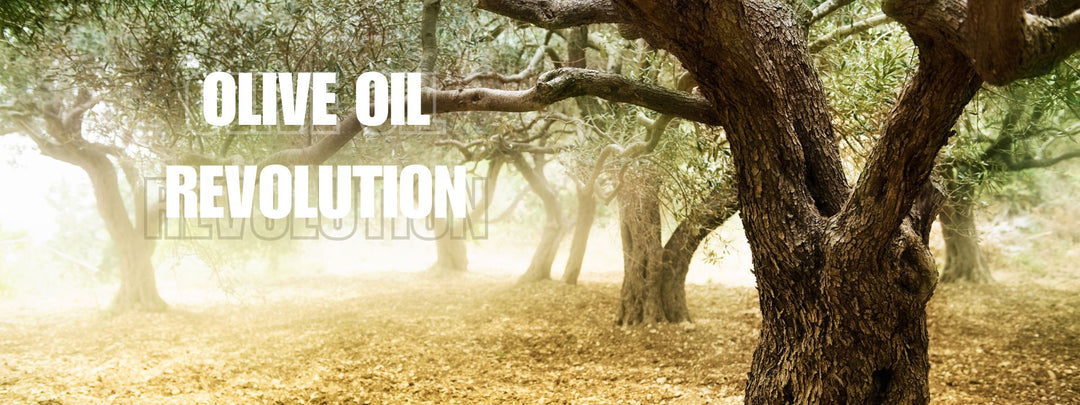
Olive Oil Revolution: How This Ancient Ingredient Is Shaping Contemporary Cuisine
Posted on
- Introduction
- The Ancient Roots of Olive Oil
- Nutritional Benefits of Olive Oil
- Types of Olive Oil
- Olive Oil in Mediterranean Cuisine
- Modern Applications of Olive Oil
- Health Consciousness and Olive Oil
- Culinary Innovations with Olive Oil
- Sustainability and Olive Oil Production
- Olive Oil in Beauty and Wellness
- Global Demand and Production Trends
- Quality Standards and Certification
- The Future of Olive Oil
- Conclusion
- FAQs
- What makes extra virgin olive oil different from other types?
- Can olive oil be used for frying?
- How can I distinguish high-quality olive oil?
- Are there any side effects of consuming olive oil?
- What are some unique ways to incorporate olive oil into recipes?
Introduction
Olive oil, a staple of Mediterranean cuisine for millennia, has experienced a resurgence in popularity in recent years. From its ancient origins to its modern-day applications, this versatile ingredient has played a crucial role in shaping contemporary cooking trends.
The Ancient Roots of Olive Oil
Dating back thousands of years, olive oil production traces its roots to ancient civilizations such as the Greeks and Romans. These cultures revered olive oil not only for its culinary uses but also for its medicinal and symbolic significance.
Nutritional Benefits of Olive Oil
Olive oil is renowned for its high content of monounsaturated fats, which promote heart health and reduce the risk of chronic diseases. Additionally, its antioxidant properties contribute to overall well-being.
Types of Olive Oil
There are several varieties of olive oil available, each with its own unique characteristics and flavor profiles. These include extra virgin olive oil, virgin olive oil, pure olive oil, and various blends.
Olive Oil in Mediterranean Cuisine
In Mediterranean cooking, olive oil serves as a foundational ingredient, imparting richness and depth of flavor to dishes such as salads, pastas, and grilled meats. Its use varies across regions, reflecting local culinary traditions.
Modern Applications of Olive Oil
Beyond traditional cuisine, olive oil has found its way into gourmet cooking and fusion dishes around the world. Chefs appreciate its versatility and ability to enhance a wide range of flavors.
Health Consciousness and Olive Oil
As consumers become more health-conscious, there has been a shift towards using olive oil as a healthier alternative to other cooking oils. Its inclusion in low-fat diets further underscores its nutritional value.
Culinary Innovations with Olive Oil
Innovative chefs are exploring new ways to incorporate olive oil into their creations, from infusing it with herbs and spices to using it in unconventional desserts. These experiments showcase the ingredient's adaptability and versatility.
Sustainability and Olive Oil Production
Concerns about environmental sustainability have led to the adoption of eco-friendly practices in olive oil cultivation. Sustainable farming methods not only protect the environment but also ensure the long-term viability of olive oil production.
Olive Oil in Beauty and Wellness
Beyond the kitchen, olive oil has gained popularity in the beauty and wellness industry. Its moisturizing properties make it a common ingredient in skincare products, while its nourishing qualities benefit hair health.
Global Demand and Production Trends
The demand for olive oil continues to grow worldwide, driven by its perceived health benefits and culinary appeal. However, challenges such as fluctuating weather patterns and pests pose threats to production levels.
Quality Standards and Certification
To maintain the integrity of the olive oil industry, various regulatory bodies enforce quality standards and certifications. These measures ensure that consumers receive authentic, high-quality products.
The Future of Olive Oil
Looking ahead, olive oil is poised to remain a staple in kitchens around the world. Emerging trends such as flavored olive oils and sustainable packaging are expected to shape the industry's evolution.
Conclusion
In conclusion, the olive oil revolution showcases the enduring appeal of this ancient ingredient in contemporary cuisine. From its rich history to its modern-day applications, olive oil continues to captivate chefs and consumers alike with its versatility and health benefits.
FAQs
- What makes extra virgin olive oil different from other types?Extra virgin olive oil is made from the first pressing of olives, resulting in a superior quality oil with low acidity and exceptional flavor.
- Can olive oil be used for frying?While olive oil can be used for frying, it is best suited for low to medium heat cooking to preserve its flavor and nutritional properties.
- How can I distinguish high-quality olive oil?Look for certifications such as the International Olive Council (IOC) seal, and opt for oils labeled "extra virgin" for the highest quality.
- Are there any side effects of consuming olive oil?When consumed in moderation, olive oil is generally safe for most individuals. However, excessive consumption may lead to weight gain due to its high calorie content.
- What are some unique ways to incorporate olive oil into recipes?Get creative by using olive oil in salad dressings, marinades, drizzled over roasted vegetables, or even in baking for moist and flavorful results.

Leave a comment: